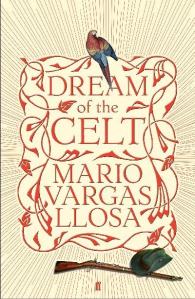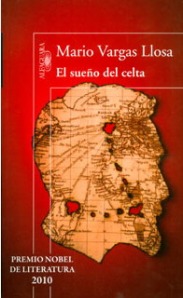First off: to the two guys who arrived at the destination, called Raj, and yet did not manage to join us for the book club – please do attend May’s discussion. How long does it take to park a car, anyway? 😉
Aaron gallivanted to Jakarta, leaving the rest of us to fend for ourselves. Props to Raj for both the food and moderating! Thank you to Joshua, Glenn, Ernest, and Luke for being there and warm welcomes to Edwin and Edwina (no, they are not related neither are they together) for their first times to QBC. Raj quipped that he didn’t know what to serve in accordance to the book’s theme, so he prepared crab sandwiches, cheese and potato sandwiches, cocktail sausages, and baby carrots.
In keeping with last month’s resolution, we started off by asking what you liked about the book. Edwina thought that the author covered various kinds of discriminations in the book and that everything was so factual that it made her read up on history and war, particularly the Irish independent movement. Joshua concurred, saying that the idea(s) for the book were well researched, particularly in geographical terms. He thought that the book developed at a good pace and not “fictionally chaotic.” Raj appreciated the extensive research done for the book too, as well as how Llosa didn’t portray the British and Irish as being the superior races.
Edwina thought that the author covered various kinds of discriminations in the book and that everything was so factual that it made her read up on history and war, particularly the Irish independent movement. Joshua concurred, saying that the idea(s) for the book were well researched, particularly in geographical terms. He thought that the book developed at a good pace and not “fictionally chaotic.” Raj appreciated the extensive research done for the book too, as well as how Llosa didn’t portray the British and Irish as being the superior races.
The first point discussed was Roger’s portrayal as a hero. Edwina said that Roger was painted in a sympathetic light, though ultimately his “sexual deviance” became his downfall. Raj questioned whether the author was biased in doing (the heroic portrayal). Joshua disagreed, stating that it was a realistic portrayal, allowing Roger to develop empathy. He thought of Roger not as a singular character who saved the day; there were others and situations that helped him out along the way. Ernest saw a brittle hardness in Roger, who was initially naiveté and stuck to his principles.
Roger’s personality deficits were then talked about. Raj was astonished that he was not willing to be forward with/for his own pleasures. We concluded that Roger may have been politically introverted.
We moved on to colonialism, with Raj asking if Llosa and the book were for or against it. Edwina felt that they were against the notion, stating that the book’s themes were “more textured,” capitalism is mixed and colonialism is wide. Joshua shared with us the statistics that 75% was against colonialism and 20% was for it (what happened to the 5%?). “If Roger was so against it, why work in Africa?” Raj inquired. Joshua guessed that it could be due to his father. Edwina quipped that it may be his way of taming the savages.
In terms of racism, Edwina found it amusing that there was limited description of the natives, and then asked if it was because of Western perceptions.
Of course, as with every (gay?) book and/or discussion, religion was brought into the fold. We questioned whether Anglicans were seen as God, and Catholicism was anti-colonialism. Edwina thought that Llosa offered a charitable description of “the organization”, though she was unsure if that should be perceived as anti-colonialism. Ernest shared a dark observation with the rest of the group: “In Congo, everybody is evil. Who is left that is good? The religious people.” Edwina helpfully concluded that the religious people were the “souls” of the book. Raj thought the book was pro-Catholic…
…Which brought us to the next point: Catholicism being a gay man’s religion. Edwina thought the notion is bizarre, although perhaps it does make sense. She then shared about how priesthood is the only way to celibacy, and “is the easy route (German) gay men take to atone their sins.”
“If he had done something with the boys, would your opinions of Roger change?” asked Raj. Joshua said yes, and said that it would be a clichéd stereotype. Edwina thought the entire scene/exchange reminded her of Vladimir Nabokov’s Lolita.
Among other things we briefly touched on were mothers and sons (Edwina equated mother to motherland, as in Ireland), the sheriff and the son, and of course the sex scenes, which everyone wholeheartedly agreed that they were disappointing, to say the least. Edwina found them tame, Joshua thought they were too short to be called “sex scenes”, and Raj just found them off-putting.
We concluded the book discussion by asking for everyone’s last words. Ernest, who only managed to read three chapters of the book, vehemently said he would not bother to finish the book as he found it too long drawn out and dry. Glenn (who only made it past the first chapter), however, would continue reading it as the references found in the book made it seem interesting. Edwin said he would read the book too.  Edwina felt that the portrayals of colonialism, religion, and race were interesting, but when it came to homosexuality, it was too one-sided. Joshua enjoyed the development of patriotism in the book and the flip-flopping of the narratives, although he felt that Llosa’s writing style was “not beautiful and historically accurate”. Language-wise, it was not captivating to him, which surprised him. We deduced that it could be due to the translation rather than Llosa himself. Raj slammed the book, saying that he hated it and found it a horrible crap. “Nothing in the book was portrayed nicely!” he bitched.
Edwina felt that the portrayals of colonialism, religion, and race were interesting, but when it came to homosexuality, it was too one-sided. Joshua enjoyed the development of patriotism in the book and the flip-flopping of the narratives, although he felt that Llosa’s writing style was “not beautiful and historically accurate”. Language-wise, it was not captivating to him, which surprised him. We deduced that it could be due to the translation rather than Llosa himself. Raj slammed the book, saying that he hated it and found it a horrible crap. “Nothing in the book was portrayed nicely!” he bitched.
In the end, as opposed to the title, it was a nightmare to read the book.

